Glory to Jesus Christ!
Fourth Sunday after Pentecost — Sunday of All Saints of Rus’ – the Ukraine
9:00 a.m. For the people of the parish
10:30 a.m. +Emil Wysowskyj requested by Maria Wysowskyj
Epistle: Romans 6:18-23
Gospel: Matthew 8:5-13, Tone 3
Monday, 7/03/17 Holy Martyr Hyacinth
8:00 a.m. +Ivan & Halyna Lobay requested by Maria Lobay
Tuesday, 7/04/17 Our Father Andrew of Jerusalemite, Archbishop of Crete
8:00 a.m. no special intention for the Divine Liturgy
Wednesday, 7/05/17 Venerable Father Athanasius of Athos
8:00 a.m. no special intention for the Divine Liturgy
Thursday, 7/06/17 Venerable Father Sisoes the Great
8:00 a.m. no special intention for the Divine Liturgy
Friday, 7/07/17 Venerable Father Thomas of Maleum
8:00 a.m. no special intention for the Divine Liturgy
Saturday, 7/08/17 Holy Great Martyr Procopius
9:00 + Maria Godenciuc, Anna Lupsac (Pan.)
Sunday, 7/09/17 5th Sunday after Pentecost, Holy Priest-Martyr Pancratius, Bishop of Tauromenia
9:00 a.m. Special Intention
10:30 a.m. For the people of the parish
Epistle: Romans 10:1-10
Gospel: Matthew 8:28-9:3, Tone 4
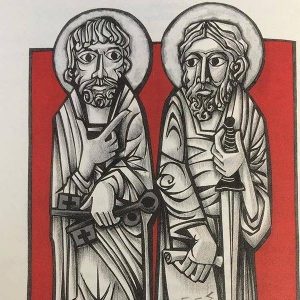 The Holy and Pre-Eminent Apostles Peter and Paul
The Holy and Pre-Eminent Apostles Peter and Paul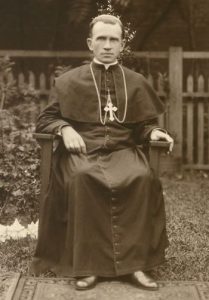
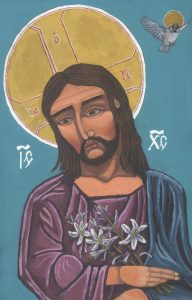 On this Third Sunday after Pentecost, the Church proclaims the Gospel of Matthew (6:22-34). Let us seek the Kingdom of God –together.
On this Third Sunday after Pentecost, the Church proclaims the Gospel of Matthew (6:22-34). Let us seek the Kingdom of God –together.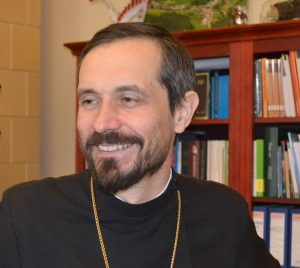 Today, the Holy Father appointed Bishop Milan Lach, SJ, as Apostolic Administrator for the
Today, the Holy Father appointed Bishop Milan Lach, SJ, as Apostolic Administrator for the 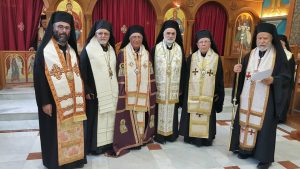 Archbishop Joseph Absi, Patriarchal Vicar for Damascus, has been elected as the new Melkite Patriarch. Axios!
Archbishop Joseph Absi, Patriarchal Vicar for Damascus, has been elected as the new Melkite Patriarch. Axios!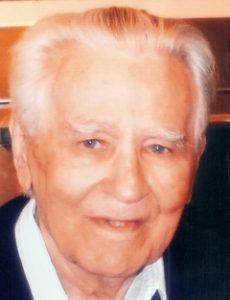 Michael Curkan, 95, fell asleep in the Lord this past Sunday. He was the beloved husband of Denise Charlier Curkan for 70 years. Michael is survived by his three loving daughters, Marie Flanagan (Michael) of Florida, Alix Elkin (Steve) of Guilford and Jackie Herbert (Michael) of Fairfield; and four devoted grandchildren, Michael and Charles Herbert, Carley and Casey Elkin.
Michael Curkan, 95, fell asleep in the Lord this past Sunday. He was the beloved husband of Denise Charlier Curkan for 70 years. Michael is survived by his three loving daughters, Marie Flanagan (Michael) of Florida, Alix Elkin (Steve) of Guilford and Jackie Herbert (Michael) of Fairfield; and four devoted grandchildren, Michael and Charles Herbert, Carley and Casey Elkin.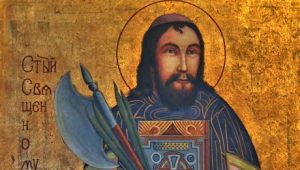 On Sunday, June 25, 2017, His Beatitude Sviatoslav and the entire Ukrainian Catholic Church will celebrate 150th Anniversary of Canonization of Saint Josaphat. The Divine Liturgy will be celebrated on the main altar of Saint Peter’s Basilica in Rome.
On Sunday, June 25, 2017, His Beatitude Sviatoslav and the entire Ukrainian Catholic Church will celebrate 150th Anniversary of Canonization of Saint Josaphat. The Divine Liturgy will be celebrated on the main altar of Saint Peter’s Basilica in Rome.